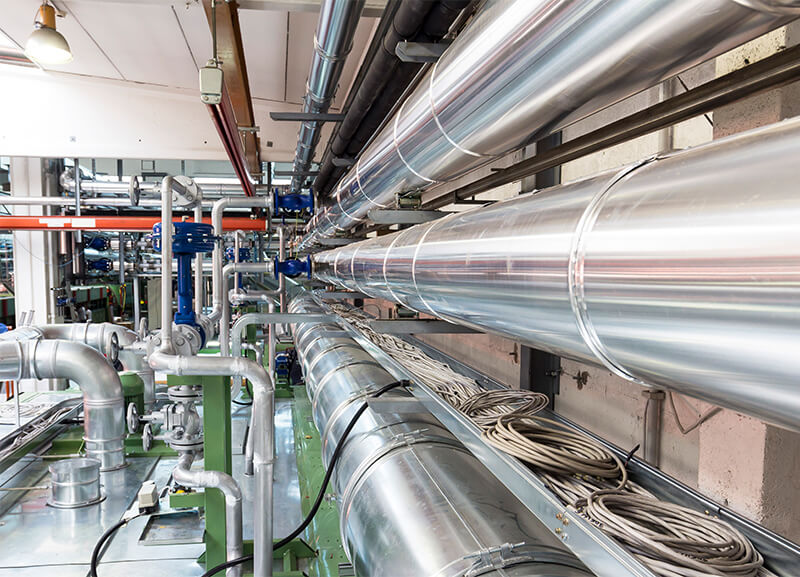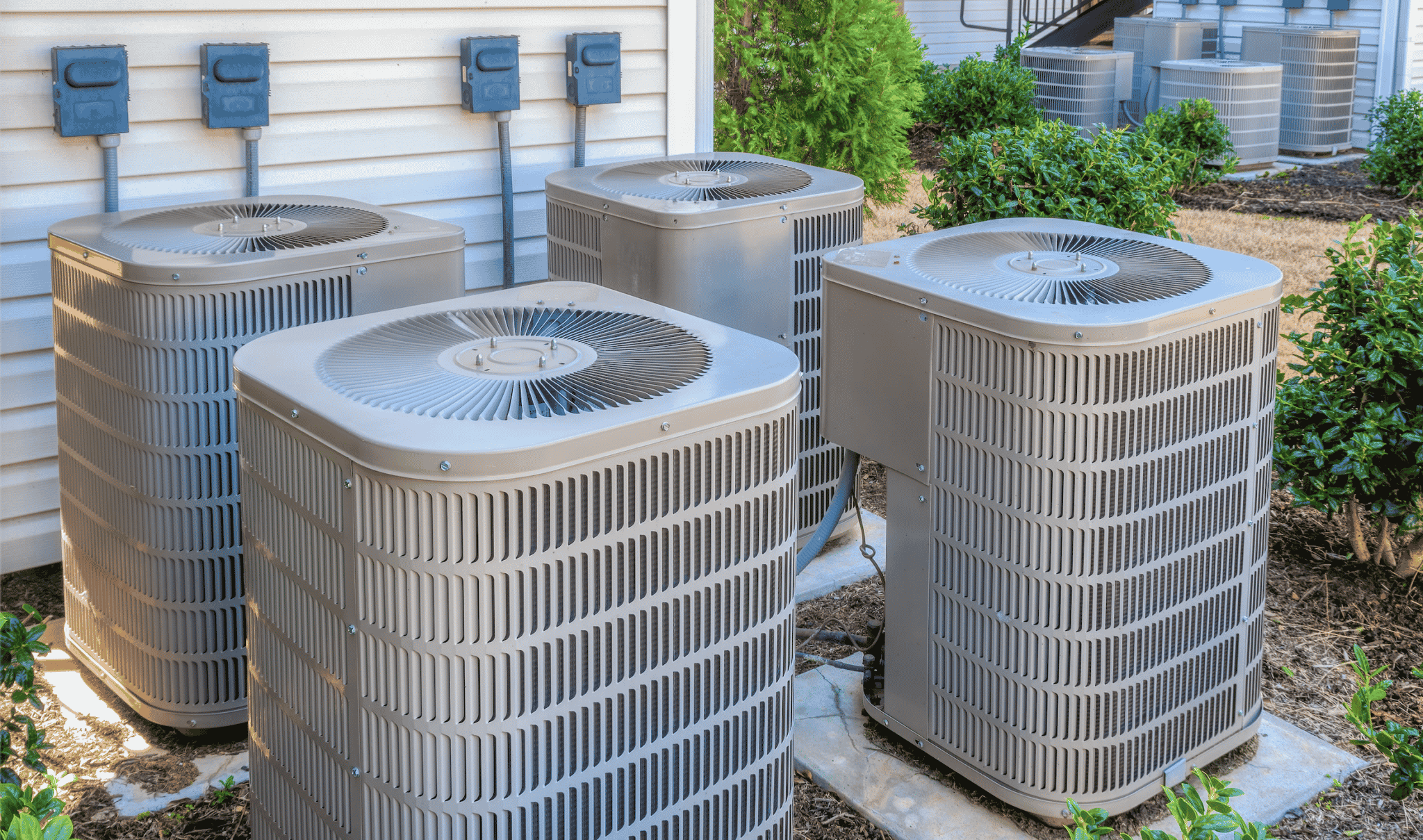Discover how skilled HVAC experts can maximize your home comfort this season
Exploring the Crucial Parts of a Reliable HVAC System
An effective HVAC system is improved numerous crucial parts that function in harmony. Each component, from the thermostat to the ductwork, plays a necessary duty in maintaining comfort and power efficiency. Comprehending these components is crucial for maximizing performance and improving indoor air high quality. As one examines these components, the complex relationships in between them disclose understandings right into boosting overall system efficiency. What certain variables contribute most to this performance?
The Role of the Thermostat in A/c Efficiency

Typically forgotten, the thermostat plays a critical role in the efficiency of Heating and cooling systems. This small tool works as the main control center, regulating temperature level settings and guaranteeing ideal convenience within an area. By accurately picking up the ambient temperature, the thermostat communicates with the air, home heating, and air flow conditioning units to keep the preferred climate
A reliable thermostat reduces power consumption by triggering the HVAC system just when required, thereby stopping excessive home heating or air conditioning. Modern programmable and smart thermostats enhance this effectiveness further by allowing users to set schedules and from another location adjust settings, adjusting to daily regimens.
Furthermore, the positioning of the thermostat is necessary; improper place can result in incorrect temperature level readings, causing inefficient procedure. On the whole, a well-functioning thermostat not only boosts comfort yet additionally adds noticeably to energy savings and the durability of the cooling and heating system.
Understanding the Significance of Air Filters
Air filters serve a necessary feature in HVAC systems by guaranteeing that the air circulating within a space remains clean and healthy and balanced. These filters catch dirt, allergens, and other contaminants, avoiding them from being recirculated throughout the atmosphere. By catching these bits, air filters add to enhanced indoor air quality, which can significantly benefit passengers' wellness, especially those with allergies or breathing problems.
Furthermore, preserving tidy air filters boosts the performance of cooling and heating systems. Clogged filters can restrict air movement, creating the system to function tougher to keep preferred temperatures, causing raised power consumption and higher energy bills. Consistently changing or cleaning filters is an essential upkeep step that can lengthen the life expectancy of HVAC tools. Eventually, understanding the importance of air filters permits house owners and building supervisors to take proactive procedures to guarantee a well-functioning, reliable a/c system that promotes a comfy and risk-free interior atmosphere.

The Performance of the Furnace and Heatpump
Heating systems and heat pumps are critical parts of heating and cooling systems, responsible for providing heat during chillier months. Heaters run by home heating air via combustion or electrical resistance, then distributing it throughout the home using ducts. They usually provide quick home heating and can be sustained by gas, electricity, or oil, relying on the system type.
Conversely, warmth pumps transfer warmth instead of produce it. They draw out warmth from the outside air or ground, also in reduced temperatures, and move it inside your home. HVAC experts. This twin functionality enables heatpump to likewise give cooling in warmer months, making them flexible alternatives for year-round climate control
Both systems need correct maintenance to ensure performance and longevity. While heating systems succeed in extreme cold, heatpump can be useful in moderate climates. Comprehending their distinctive functionalities aids home owners in selecting the most appropriate alternative for their home heating requires.
Exploring the A/c System
The air conditioning unit is a crucial part of a/c systems, available in numerous kinds to fit various needs. Recognizing the performance rankings of these units is crucial for making informed choices about energy intake and price. This area will explore the varied kinds of air conditioning system and clear up just how effectiveness scores effect efficiency.
Kinds Of Air Conditioners
While various elements affect the selection of cooling systems, understanding the different types readily available is crucial for property owners and building supervisors alike. Central air conditioning conditioners are designed to cool entire homes or structures, making use of a network of air ducts for air movement. Window systems supply an even more local remedy, suitable for small spaces or solitary spaces. Portable a/c unit offer versatility, enabling individuals to move the unit as needed. Ductless mini-split systems are an additional option, integrating the performance of main systems with the convenience of zoning, as they need no ductwork. Finally, geothermal systems harness the earth's temperature level for energy-efficient air see here now conditioning. Each kind comes with distinct benefits, making notified selections essential for efficient climate control.

Performance Scores Described
Recognizing effectiveness ratings is essential for selecting the best cooling system, as these metrics offer insight right into the system's performance and energy consumption. One of the most typical ranking for ac system is the Seasonal Energy Efficiency Ratio (SEER), which determines the cooling result during a regular cooling season separated by the total electric energy input. A higher SEER shows better performance. Additionally, the Power Efficiency Ratio (EER) is made use of for measuring performance under certain problems. Another essential metric is the Energy Celebrity qualification, which indicates that an unit meets stringent power effectiveness standards. By examining these scores, customers can make informed choices that not just optimize convenience yet also lower power costs and environmental influence.
The Significance of Ductwork and Airflow
Effective ductwork style and air flow administration play crucial functions in the total effectiveness and efficiency of cooling and heating systems. Correct ductwork assurances that conditioned air is dispersed equally throughout a space, minimizing temperature level variations and improving comfort. Well-designed ducts lessen resistance to air flow, reducing the work on a/c equipment and inevitably reducing power intake.
Air flow administration involves purposefully putting vents and signs up to boost the flow of air. This stops usual concerns such as cold or warm places, which can occur when air flow is blocked or inadequately check my source well balanced. Furthermore, the ideal duct products and insulation can better improve effectiveness by minimizing warmth loss or gain during air transit.
A reliable ductwork system not just contributes to energy financial savings yet can also prolong the life expectancy of cooling and heating tools by lowering unneeded strain (HVAC experts). Understanding the value of ductwork and air flow is important for achieving peak Cooling and heating system performance.
Normal Upkeep Practices to Enhance Efficiency
Routine maintenance techniques are vital for ensuring peak efficiency of heating and cooling systems. These techniques consist of regular assessments, cleaning, and needed repair work to keep the system running successfully. Regularly transforming air filters is crucial, as clogged filters can block airflow and lower efficiency. On top of that, specialists must inspect and tidy evaporator and condenser coils to stop getting too hot and power wastefulness.
Annual expert inspections are likewise advised, as qualified professionals can identify prospective concerns before they intensify. Lubing moving parts lessens wear and tear, adding to a much longer life-span for the system. Furthermore, making certain that the thermostat functions properly help in keeping perfect temperature control.

Frequently Asked Inquiries
How Commonly Should I Replace My Thermostat?
Thermostats ought to normally be changed every 5 to 10 years, depending upon use and technology developments. Routine checks are a good idea to assure peak efficiency, specifically if experiencing irregular temperature level control or increased power costs.
What Size Air Filter Is Best for My A/c System?
The most effective dimension air filter for a cooling and heating system differs by device design. Generally, it's crucial to seek advice from the owner's guidebook or check the existing filter dimensions to ensure peak efficiency and air quality.
Can I Install a Heatpump Myself?
Mounting a warmth pump individually is possible for competent individuals, yet it requires expertise of electric systems and neighborhood codes. Employing an expert is suggested to ensure appropriate setup and excellent system performance.
How Do I Know if My Ductwork Is Reliable?
To determine ductwork performance, one need to check for leaks, measure air movement at vents, check insulation high quality, and assess temperature distinctions in between supply and return ducts. Professional assessments can give detailed understandings into overall efficiency.
What Are Indications My A/c Needs Immediate Upkeep?
Indications that a heating and cooling system needs prompt maintenance consist of uncommon sounds, inconsistent temperature levels, boosted energy expenses, undesirable odors, and constant cycling. Resolving these problems quickly can stop further damages and guarantee height system performance.
Air filters serve an essential function in Cooling and heating systems by ensuring that the air flowing within a space stays clean and healthy and balanced. In addition, keeping clean air filters improves the effectiveness of Cooling and heating systems. Ductless mini-split systems are another choice, incorporating the efficiency of central systems with the ease image source of zoning, as they require no ductwork. Recognizing efficiency scores is essential for choosing the appropriate air conditioning device, as these metrics offer understanding into the system's performance and power intake. The best size air filter for a Cooling and heating system varies by system layout.